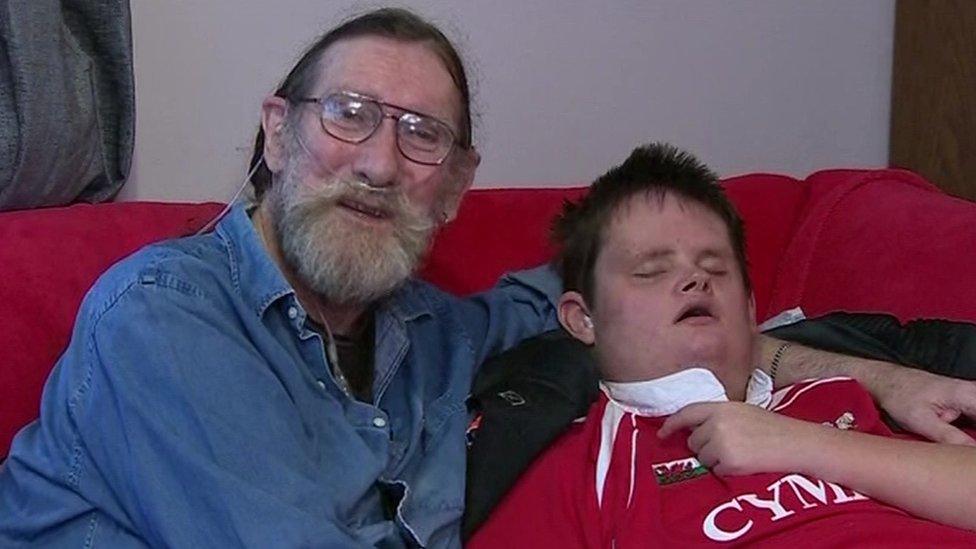Families win against housing benefit cut
- Published
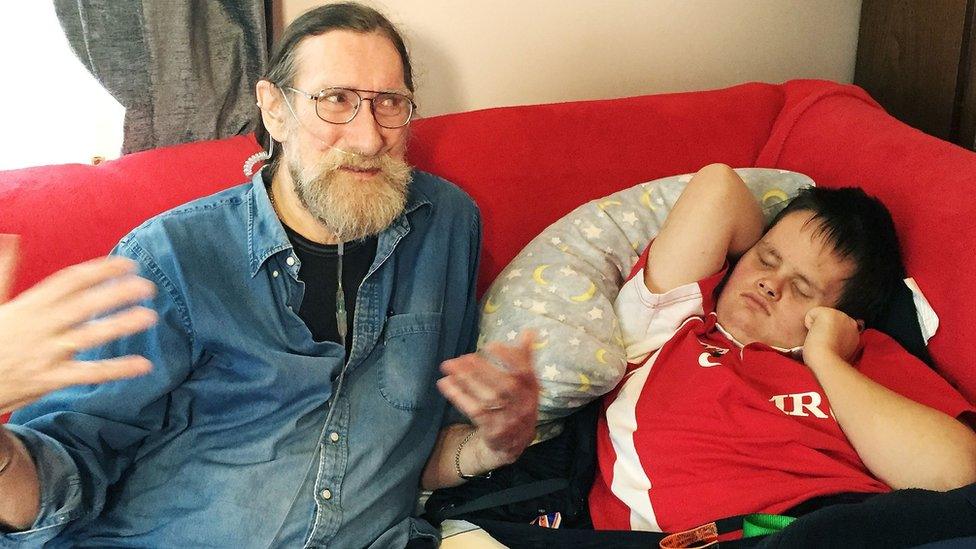
Judges dismissed the government's appeal against the Rutherford family
A woman who has spina bifida and a couple who look after their severely-disabled grandson have won their Supreme Court appeals against the so-called "bedroom tax".
The court ruled, external that the government's changes to housing benefit discriminated against them.
But five other people had similar challenges dismissed by the court.
The court said councils should be able to decide which tenants were given discretionary payments to help them.
Disability campaigners have been protesting against the system, which removed subsidies for social housing tenants who were deemed to have "spare" rooms in their homes, since it was introduced by the government in 2013.
Dubbed the "bedroom tax" by Labour, tenants affected had payments cut by 14% for one spare bedroom and 25% for two or more spare bedrooms.
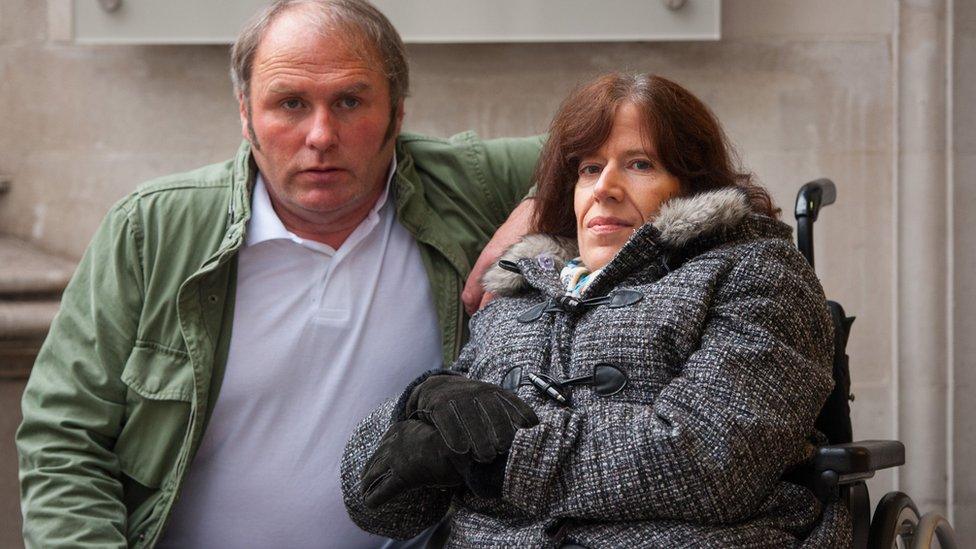
After the ruling Jayson Carmichael said he hoped Theresa May would look at the policy again
The Department for Work and Pensions (DWP) had argued that it had given councils money to make discretionary payments to people facing hardship because of the policy change.
Welcoming the ruling, a DWP spokesman said: "In most cases, local authorities are best placed to understand the needs of their residents."
'Line to be drawn'
Delivering the judgement on Wednesday, Lord Toulson said the judges had unanimously agreed that the claim the benefit change had discriminated against disabled people was "too broad".
He said: "There is a line to be drawn between on the one hand those who have a medical need for an additional bedroom and on the other hand, those who do not have a direct medical need for an additional room but may have powerful reasons for staying where they are, because of their particular personal circumstances."
For spina bifida patient Jacqueline Carmichael, 44, from Southport, Merseyside, the need for an extra bedroom was medical, he said, with judges unanimously ruling that "the scheme in relation to her is discriminatory".
Her condition means she has to sleep in a hospital bed in a fixed position. There is not enough space for a second bed so her husband Jayson sleeps in a separate bedroom.
Mr Carmichael brought the court challenge along with four others after suffering defeat at both the High Court and Court of Appeal in January.
Outside the court on Wednesday, he said he hoped their victory would help others.
He said: "It's put a dent in this undemocratic policy which was never, never voted, never in any party's manifesto in the first place, the 'bedroom tax'.
"We are pleased now, we hope Theresa May will look at the policy again so that, so that it will take into consideration a lot of people's personal circumstances, which it hasn't in the past."
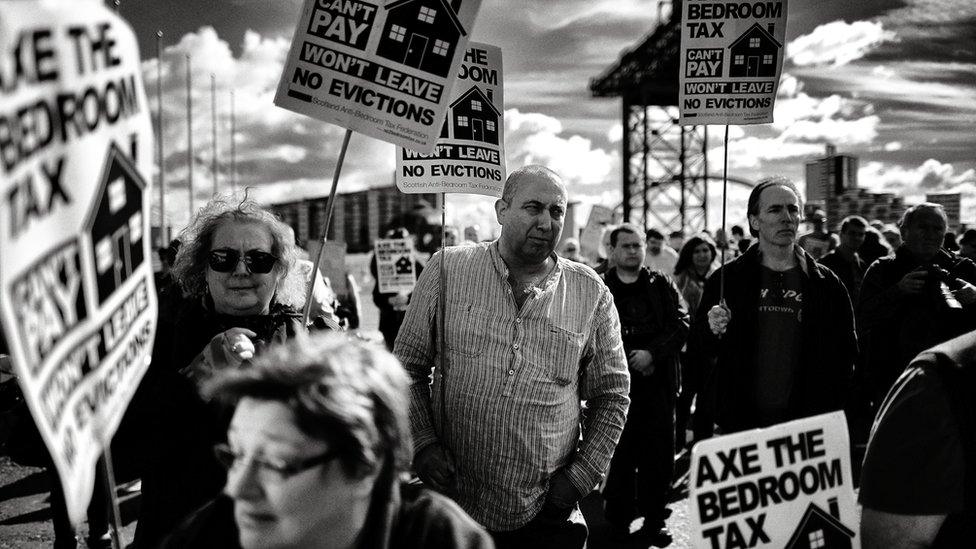
Protesters rallied against the housing benefit changes in 2013
The court also ruled in favour of Pembrokeshire couple Paul and Susan Rutherford and their 15-year-old grandson Warren. Their case focused on the impact of the policy on disabled children needing overnight care.
Speaking outside the court, Mr Rutherford said: "It's probably the best day we've had in the last three-and-a-half years and we're just really glad that it's all over.
"Glad that we've won for everybody else who's in our situation, because there's quite a few out there who are."
'Disappointed and baffled'
However, the judges rejected the cases of five others who have had their housing benefit reduced as a result of the government's changes. They are:
Richard Rourke, 49, from Bakestone Moor, Derbyshire, who said he needed an additional bedroom to store mobility equipment. He has had his housing benefit reduced by 25%
James Daly, from Stoke, the father of a severely-disabled teenage son. He and his ex-partner share the boy's care
Mervyn Drage, from Manchester, occupies a three-bedroom flat in a high-rise tower block, and has lived there for 19 years. He suffers from mental health and physical problems
A woman identified as "A" who had a council house fitted with a panic room to protect her from a violent partner
A mother who can only be referred to as "JD" to protect the identity of her disabled adult daughter
The solicitor for the woman known as "A" said her client intended to challenge the ruling in the European Court of Human Rights, for the breach of her rights and "other vulnerable women whose lives are at risk".
Rebekah Carrier, at Hopkin Murray Beskine solicitors, added: "Although we welcome today's ruling that A must continue to receive Sanctuary Scheme protection for as long as she needs it, we are disappointed and frankly baffled by the majority's finding that there is no need to formally exempt Sanctuary Scheme users from the effects of the bedroom tax."
Lord Toulson said there was "no dispute" that A needed protection under the government's Sanctuary Scheme. However, he said that her property, which has been adapted, was larger than she needed and she did not necessarily need to stay in it.
The government argues that the benefit changes encourage people to move to smaller properties and saves about £480m a year from the housing benefit bill.
A DWP spokesman said: "It is welcome that the court found in our favour in five out of the seven cases.
"The court also agreed with our view that discretionary housing payments are generally an appropriate and lawful way to provide assistance to those who need extra help. In the two specific cases where the court did not find in our favour, we will take steps to ensure we comply with the judgement in due course."
- Published29 February 2016
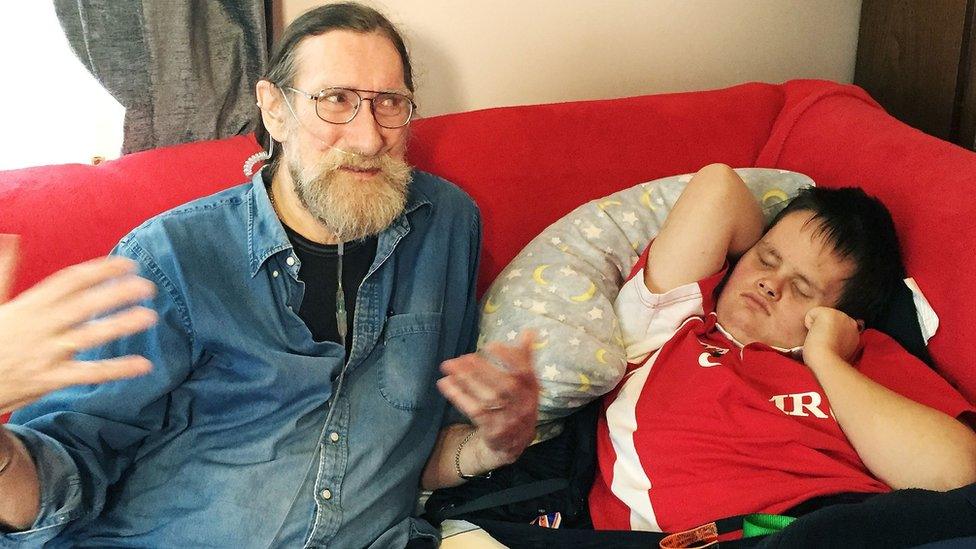
- Published21 February 2014
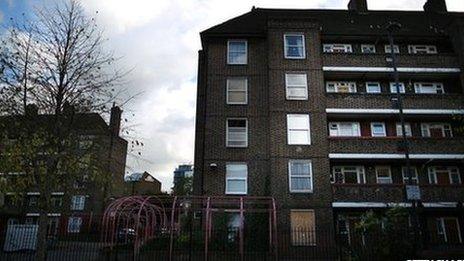
- Published27 January 2016
